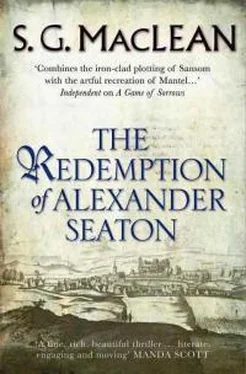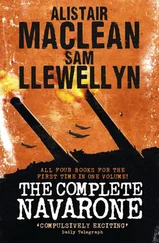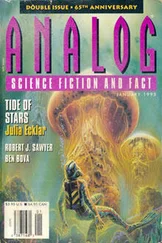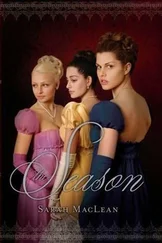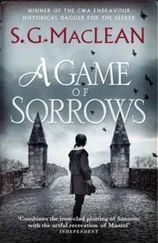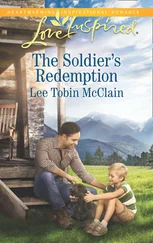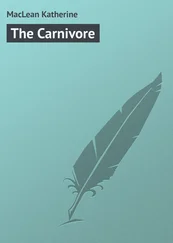‘Have you seen this work, Mr Seaton?’
I affirmed that I had.
‘And what is your assessment of it?’
I had not expected this again, and had no intention this time either of making accusations against a man who was not able to answer for himself. My only course was to lie.
‘I have no assessment of it – none of any significance. It is a map, it is of the coast near Banff, and it is a tidy and detailed bit of work.’
I did not meet Straloch’s eye; I knew he did not believe me.
‘Come now, Mr Seaton, you are a man of some intelligence. This document gives rise to no curiosity, no conjecture, in your mind?’
I met his gaze now. ‘Only a fool would not be curious,’ I said. ‘I am as curious as our provost and the rest concerned in this business to know what this map signifies. As to conjecture, though, I have learnt that it is a habit best indulged in solitude.’
Straloch nodded. ‘I believe you may well be right. If more of our countrymen were of the same opinion, this would be a more peaceable land.’ He laid the map on a table near the fire, and motioned for me to join him at it. ‘But as to this map, we must deal in specifics, and I cannot believe that you have not formed any view as to why it might have been drawn. The authorities in Banff would never have sent it to me for examination had they no notion at all of what it might be used for. And you must be of their counsel, since you have been entrusted with the document itself, and with my reply – should I choose to make one.’
There might have been some hostility in the laird’s tone; I could not tell, for I did not know him well enough. I could not blame him for it: if I would not be frank with him, why should he be so with me? What did I owe to the town of Banff, or to those who had sent me on this commission, that I should lie for them? Straloch returned to the map. ‘I will tell you straightly. This is fine work, amongst the finest I have seen. Whose is it? Who is this mysterious visitor to the burgh who has such a thing in his possession?’ The provost had warned me that I was not to answer the laird’s questions, but I was a guest in the laird’s house, and the provost was not here.
‘It is the work of the provost’s nephew, apprentice to Edward Arbuthnott, apothecary of Banff.’
Straloch set down the document. The expression on his face did not allow of further dissembling. ‘Do you tell me that this map was drawn by the man lately found murdered in Banff?’ He saw my awkwardness but waved it away. ‘Do your minister and baillie really think such matters can be kept within the bounds of your burgh like a tethered cow? The whole country is alive with the news, and that the music master is in jail, suspected, all over the love of a woman. But what you bring me today is no lover’s trick. I think you fear you have the wrong man in jail, and perhaps for the wrong crime.’
‘I know that the wrong man is in jail. Charles Thom is no more capable of murder than I am, over a woman or anything else. And as to the crime – I speak for myself here, you understand, and not for those who sent me?’
He acquiesced.
‘That there has been a crime is not in doubt; that there has been a murder, is not in doubt. The reason for the murder – that is in doubt. If once that can be established, the rest should follow. But in truth,’ and here I knew I was departing completely from the commission given to me, ‘I think those in whose place I have come – the provost, baillie, minister and notary public of Banff – have forgotten there ever was a murder, so aroused are their fears by the discovery of the document before you.’
Straloch looked up and spoke slowly. ‘And are there others?’
‘There are,’ I said. ‘In sequence they cover the entire coastline from Troup Head to Cullen, and inland towards Rothiemay and Strathbogie. There are pointers southwards for Turriff, Oldmeldrum, and Aberdeen.’
Straloch straightened and regarded me directly, no longer looking at the map. ‘And so the authorities of Banff fear their burgh is to be the first staging post for an invasion force, and you have been sent to ask me whether the Marquis of Huntly intends to head the invasion in person.’ A smile played upon his lips now, but his eyes were in deadly earnest.
‘They fear a Catholic invasion. That much it would be pointless to deny, but they mean no insult to you or to your noble patron, the marquis. It is in virtue of your learning and expertise in the matter of cartography that you are consulted. We,’ and now I revealed that I was of the inner counsel, ‘thought it might be possible that Patrick Davidson was acting on commission – a legitimate scholarly commission, and we could think of no one other than yourself who might be in any way placed to know about such things.’
Straloch seemed to accept that there was some sense in this. But he knew also that I might well have worded it differently. I might have said, ‘The authorities in Banff do not trust you, and they trust your master less, but we have no choice other than to seek your advice.’ My host stood up and walked to a table on the other side of the room. It was covered in charts and sheaves of notes. ‘What you see here is the fruit – the bud, more rightly – of many years’ labour, my own and others. You have heard of Timothy Pont?’
I confessed that I had not. My ignorance seemed to surprise him, but he continued. ‘Pont spent many years involved in the mapping of our country. On his death a few years ago, the task remained uncompleted. As you know, I have long had an interest in the subject, and it is an interest shared, I am glad to say, by my son James. Our researches go further than this work of your apothecary’s apprentice – we have a great interest in genealogy, in our local history and antiquities, but our cartography is not as fine as this. This is the work of a strategist, as is evident from the detail he chooses to include. One might well suspect that an invading army could put a document such as this to much use. I am certain that no legitimate commission was issued for the doing of this work – I would have been sure to hear of it. You must believe that it is experience, and not vanity, that make me confident in this.’
‘I would not have thought otherwise,’ I said.
‘I can assure you, in consequence, that I know of no project, other than that which I myself am engaged upon, to map this part of the country. I can also assure you, and you and your masters may believe this as you wish, that there is no plot that I know of for the invasion of our country from the coastline of the firth of Moray.’
I was embarrassed to be the receiver of such an assurance from a man so learned and so worthy of respect as Robert Gordon of Straloch. My discomfort was all the greater in knowing that he knew my own history, and that I had proven myself unworthy of trust and undeserving of respect. He should never have had to make such a declaration to me. I was conscious now not only of the grandness of the room, of the hundreds of books that lined the shelves, but of the portrait of Robert Gordon himself that hung over the fireplace – Jamesone’s work, by the look of it – the smell of sandalwood, the painted mural on the far wall. This was a man of wealth, family and standing, and he had felt constrained to defend himself to me. I began to see now why I, rather than someone who mattered, had been sent here on the business of the burgh of Banff, and I did not like it. I assumed our interview was over and got up to leave, but he put out a hand to stay me. ‘Tarry a while, Mr Seaton. The hour is not yet late and I will not keep you long. I would know more of this bad business in Banff, if you are willing to tell me.’
In my head I heard again the provost’s words of warning: ‘our business here is none of his,’ but again I reasoned that the provost was not here and I was, and, with William Cargill’s admonitions still fresh in my mind, I was no longer sure that I trusted Walter Watt or any others in Banff who had sent me on this mission. ‘There is little enough to tell – little that I can understand, at any rate. What is it you wish to know?’
Читать дальше
